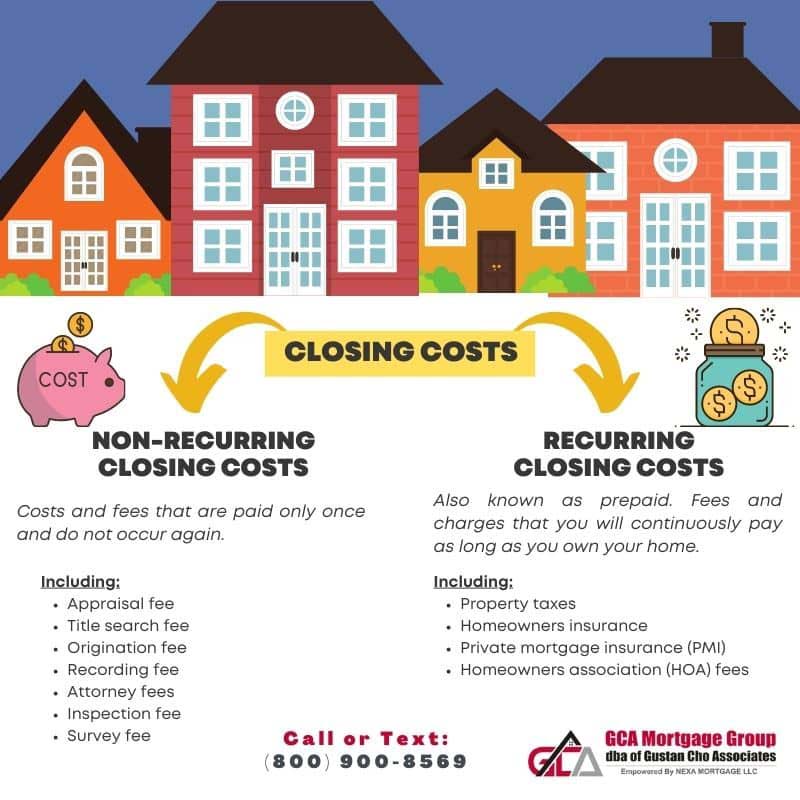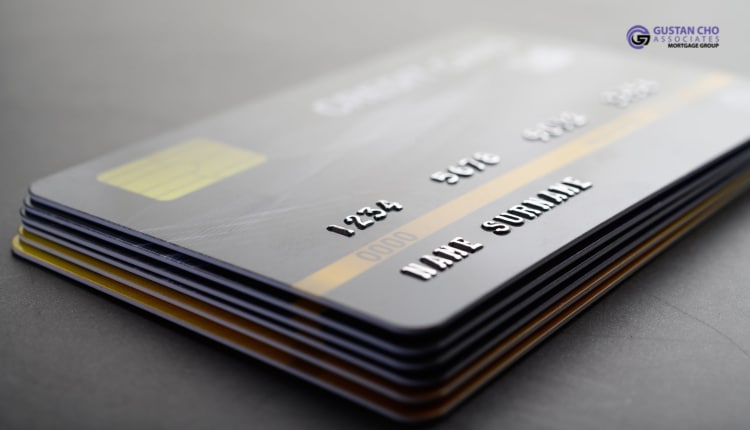How Much Are Closing Costs For Homebuyers
The down payment on a home purchase is a fixed percentage but not closing costs. There are two types of payments that are required to close on a home purchase. The first is the down payment and the second is closing costs. The down payment is self-explanatory.
The down payment required for a home depends on the particular loan program and is a fixed percentage. Closing costs is a variable cost dependent on each individual purchase transaction.
For FHA loans, the minimum down payment required on a home purchase is a 3.5% down payment. For conventional loans, it is a 5% down payment. For Jumbo mortgages, 10% is the minimum down payment. VA loans and USDA loans do not require any down payment. Condotel and non-warrantable condominium mortgage loans require a 20% to 25% down payment. Second homes mortgage loans and vacation home mortgage loans require a 10% down payment.
What Are Closing Costs?
Closing costs are third-party costs and fees that are required besides the down payment. Closing costs are any costs and fees associated with the closing transaction on either a home purchase loan or refinance mortgage loan.
Examples of costs homebuyer’s need to pay besides the down paymet are title charges, transfer stamps, recording fees, home inspection fees and costs, credit report fees, underwriting fees, courier fees, points to buy down the mortgage rates, and costs, one-year homeowners insurance and/or flood insurance, escrows for taxes and insurance, and any other charges that are associated with closing the home loan.
The tentative closing costs are disclosed in the initial loan estimate.
How Much Are Closing Costs?
Closing costs are not a fixed percentage amount of a home’s purchase price like the down payment requirement. Costs and fees close on a home purchase vary from state to state and county to county.
On average, costs to close on a home loan for homebuyers are between 2% to 7% of the home purchase price, depending on whether the home buyer needs flood insurance or not. Flood insurance can be quite costly.
Costs associated with buying down mortgage rates are also considered closing costs. For example, the cost to close on a home purchase in Illinois are much less than the closing costs of a home purchase in Florida. The average closing cost for an Illinois home that is $200,000 is $3,500 whereas the average closing cost for a $200,000 Florida home purchase is $5,000.
How To Get Closing Costs Waived
What Are Non-Recurring Closing Costs
There are two types of closing cost. Non-recurring closing cost and recurring closing cost. Non-recurring closing cost are costs and fees that are paid only once and do not occur again. Ronda Butts of Gustan Cho Associates explains the definition of recurring and non-recurring closing costs.
Examples of non-recurring closing cost are title charges, escrow setup fees, notary fees and costs, wire fees, credit report fees and costs, underwriting fees, attorney costs, and fees, endorsements, recording charges and fees, transfer stamps and transfer taxes, and mortgage lender costs and fees that are paid in conjunction with the origination of the mortgage loan per line 800 of the HUD settlement statement.
Non-Curring Closing Cost are closing costs that homebuyers need to pay just once and do not continue year after year. Recurring closing cost is cost a homebuyer needs to pay year after year.
What Are Recurring Closing Costs
Recurring closing costs are also known as prepaid. These recurring costs are fees and charges that you will continuously pay as long as you own your home. Examples of recurring closing costs are homeowners insurance premiums, flood insurance if applicable, property taxes, pre-paid interest, mortgage insurance premiums, and other fees and charges.
How a Home Seller Can Pay Your Closing Costs
To offset closing costs from the home buyer, the home seller can give a home buyer a seller’s concession towards a home buyer’s costs. For example, if the bottom line dollar amount a home seller wants for their property is $100,000, the home seller can inflate the purchase price to $105,000 and give the home buyer a $5,000 seller concession towards the home buyer costs.
With the seller’s concession, the home buyer can pay for title charges, transfer stamps, prepaid, homeowners insurance, attorneys fees, points, and other closing costs associated with the home purchase.
The maximum seller concession for FHA loans is 6%. The maximum seller concession allowed on conventional loans with a 5% down payment is 3%. For conventional loans with a 10% or more down payment, the seller concession allowed is 6%. For VA loans is 4%. For USDA loans is 6%. Seller concession for investment conventional properties is 2% on conventional loans. If the whole seller concession does not get used up by the home buyer, any excess in seller concessions needs to be returned to the home seller. The home buyer cannot pocket any excess seller concession.








